Why Do I Love Working as a Gardener? Discover the Joys and Benefits
Working as a gardener offers you a unique blend of peace, joy, and a deep connection to nature. You feel a sense of fulfillment nurturing plants and witnessing their growth. This experience can turn everyday tasks into moments of happiness as you work with the soil and care for your garden.
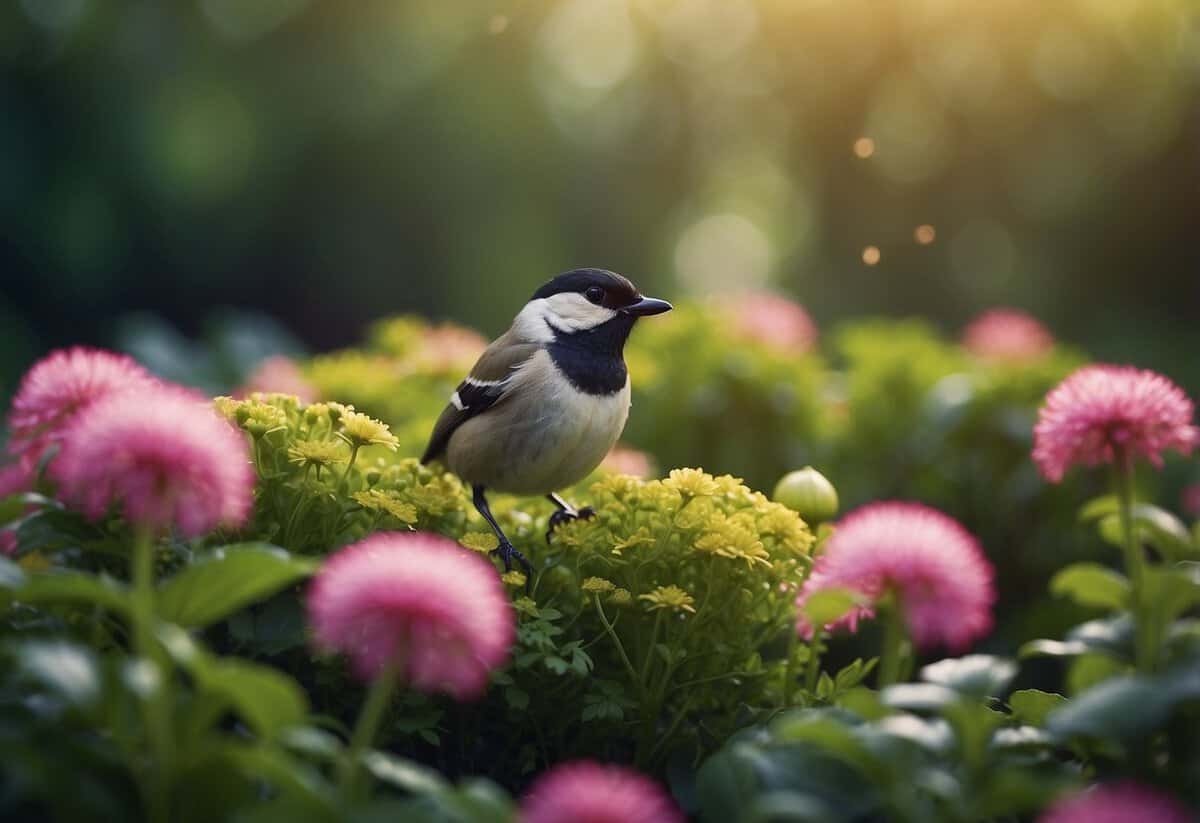
Gardening allows you to escape the stresses of daily life and find solace in the simple act of tending to plants. When you garden, you embrace a therapeutic escape, where everything else fades away and you immerse yourself in the beauty of nature. The joy you find in this work enhances your overall quality of life.
You also enjoy the flexibility and variety that come with being a gardener. Whether working outdoors in a garden or indoors with houseplants, the experience is consistently rewarding. The opportunity to work both individually and as part of a team adds another layer of satisfaction, making your job diverse and enjoyable.
The Heart of Gardening
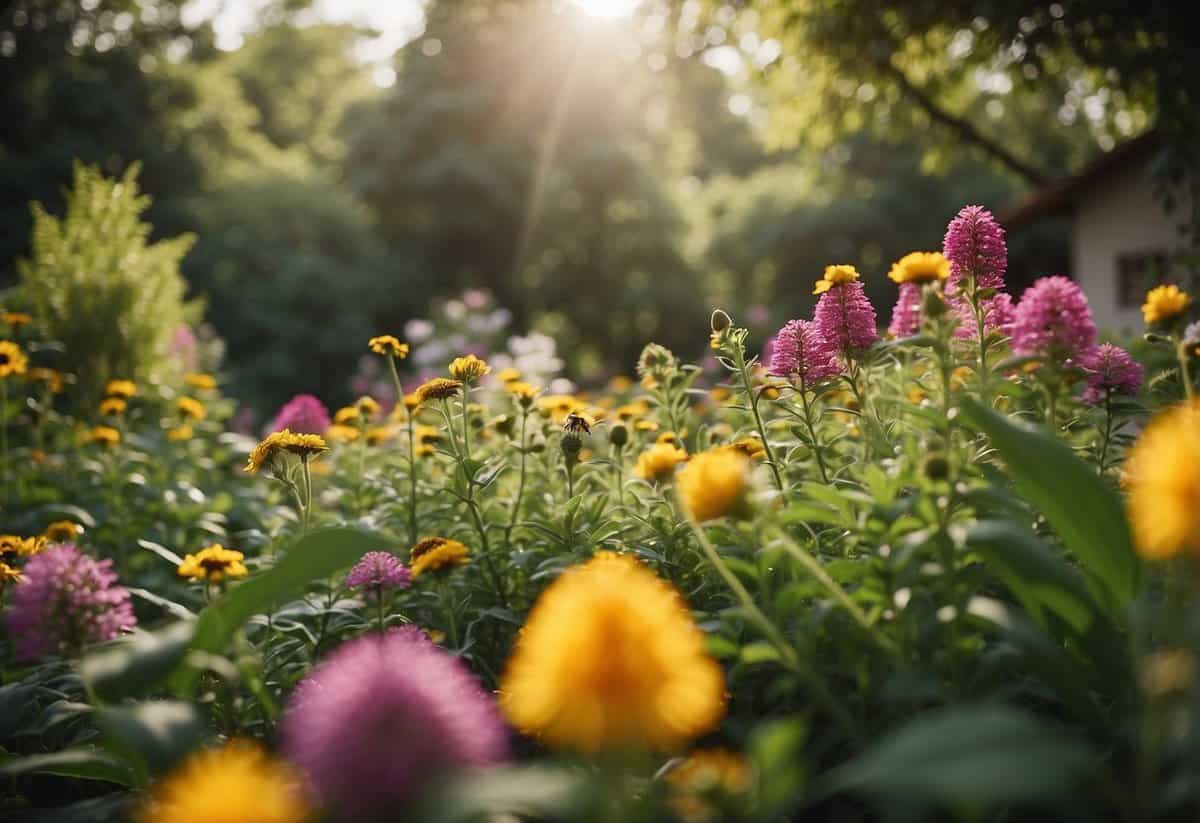
Gardening offers a fulfilling blend of working with plants and creativity in designing a beautiful, productive space. It involves learning about plant life and planning a garden that thrives and brings joy.
Understanding Plant Life
You’ll spend a lot of time getting to know different plants. Each type – from flowers and vegetables to trees – has its own needs and characteristics.
Flowers might need specific sunlight or water amounts.
Vegetables often require nutrient-rich soil and regular care.
Trees usually have extensive roots and need space.
Observing how plants grow over time is fascinating. You see how they respond to weather changes, soil types, and your care. Understanding when to plant, prune, and harvest plants helps you nurture a thriving garden. The effort you put into learning about plant life directly impacts the beauty and productivity of your garden.
Designing a Garden Space
Designing a garden means using your imagination to create a space that’s both functional and beautiful. Think about where each plant will go to ensure they get what they need to thrive.
Gardeners often sketch their ideas before planting. They consider plant heights, colors, and seasonal changes to ensure a vibrant display all year.
Creating paths, planting beds, and choosing decorations are all part of the design process. Your garden can be a reflection of your personal style. Whether you prefer a lush, flower-filled space or a practical vegetable garden, the design is where your unique touch shines through.
Gardening Techniques and Maintenance
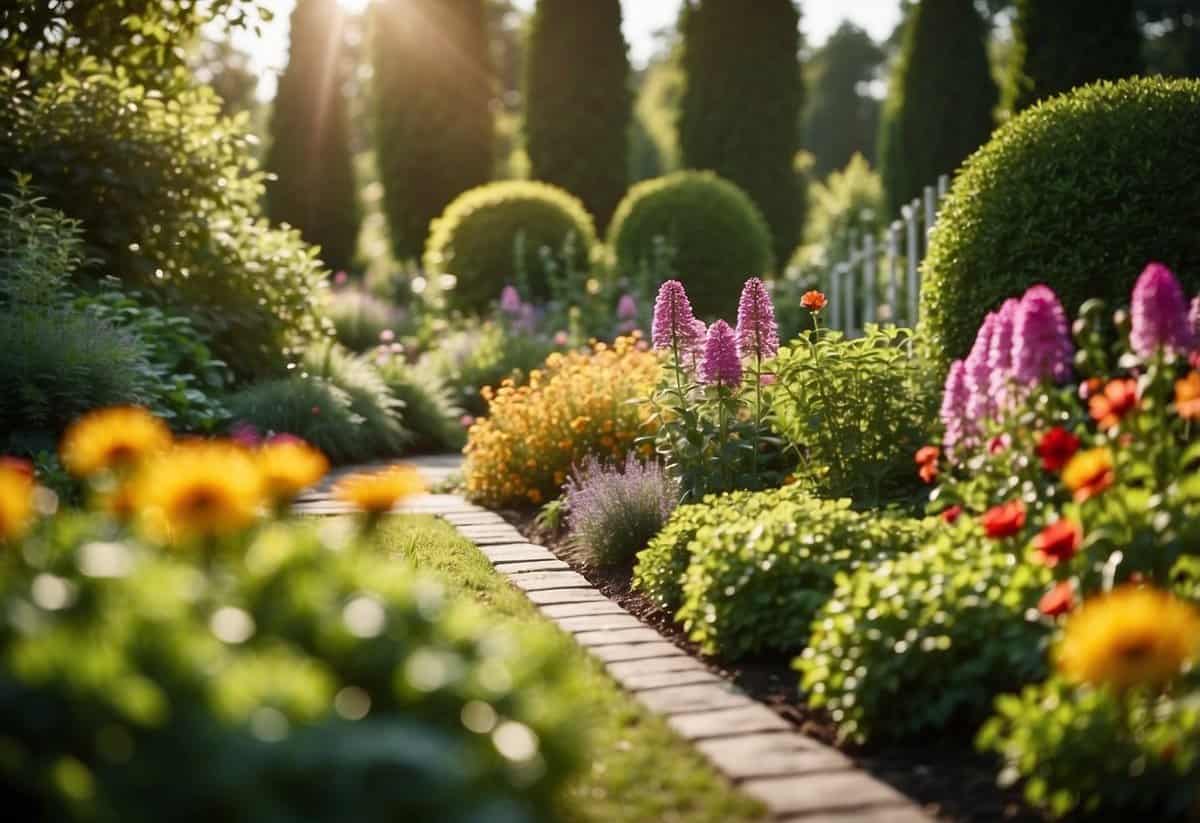
With the right techniques, you can make your garden thrive. Maintaining good soil, managing pests, and ensuring plant health are key parts of this. Here are some practical tips to keep your garden in top shape.
Soil and Compost Mastery
Healthy soil is the foundation of a successful garden. Start by testing your soil to understand its pH level and nutrient content. You can use a simple home test kit or send a sample to a local extension service. Based on the results, you might need to adjust the soil by adding compost or other organic matter.
Composting is a great way to enrich your soil. Collect kitchen scraps, leaves, and grass clippings to create nutrient-rich compost. Turn your compost pile regularly to help break down the materials and mix it into your garden soil every few months. This process improves soil structure, drainage, and fertility.
Tips for composting:
- Kitchen scraps: Fruit and vegetable peels, coffee grounds
- Yard waste: Leaves, grass clippings
- Avoid: Meat, dairy products, diseased plants
Pest Control and Plant Health
To keep your plants healthy, manage pests effectively. Start by identifying the pests in your garden. Common pests include aphids, caterpillars, and spider mites. Use natural solutions like introducing beneficial insects (e.g., ladybugs) that prey on harmful pests.
Practice crop rotation and companion planting to keep pests at bay. Growing certain plants together can deter pests and boost plant health. For example, marigolds can repel nematodes that harm tomatoes.
Monitor your plants regularly for signs of disease or pests. Remove any affected leaves or plants to prevent the spread of disease. Pruning is also essential. Trim back dead or overgrown branches to improve air circulation and reduce disease risk. Water your plants at the base early in the morning to minimize fungal infections.
Key actions for pest control:
- Identify pests: Look for specific symptoms
- Introduce beneficial insects: Ladybugs, lacewings
- Prune regularly: Remove dead or diseased parts
By focusing on soil health and pest management, your garden will be more resilient and productive.
The Joy of Garden Harvest

Harvest time brings a special kind of joy for gardeners. You get to enjoy the fruits, vegetables, and flowers that result from your hard work and passion.
The Reward of Vegetables and Fruits
One of the best rewards of gardening is harvesting your fresh vegetables and fruits. There’s nothing quite like picking a ripe tomato or a crunchy carrot.
When you pick your produce, you feel a deep sense of accomplishment. All your efforts, from planting seeds to watering and weeding, pay off. You also get to enjoy the taste and health benefits of fresh, homegrown food.
Gardening also helps you connect with nature. Seeing your garden grow and produce can make you more aware of the seasons and the cycles of plant life.
Plus, homegrown fruits and vegetables often taste superior to store-bought ones. Whether it’s a juicy strawberry or a perfect bell pepper, the flavors are often richer and more satisfying.
Enjoying Flowers and Ornamentals
Flowers also bring a lot of joy. They add vibrant colors and beautiful scents to your garden. Watching them bloom can be a daily delight.
Planting and caring for flowers can be a very relaxing activity. Flowers like roses, daisies, and sunflowers can make any garden look stunning. You get to choose the colors and types of flowers you like best.
Flowers also attract pollinators like bees and butterflies. This helps your garden thrive and keeps the ecosystem balanced. Additionally, you can use cut flowers to brighten up your home or give as gifts.
The beauty of flowers can improve your mood and create a positive atmosphere. Whether you have a small patch or a large garden, flowers can make your space more enjoyable.
Sustainable Gardening and Environmental Care
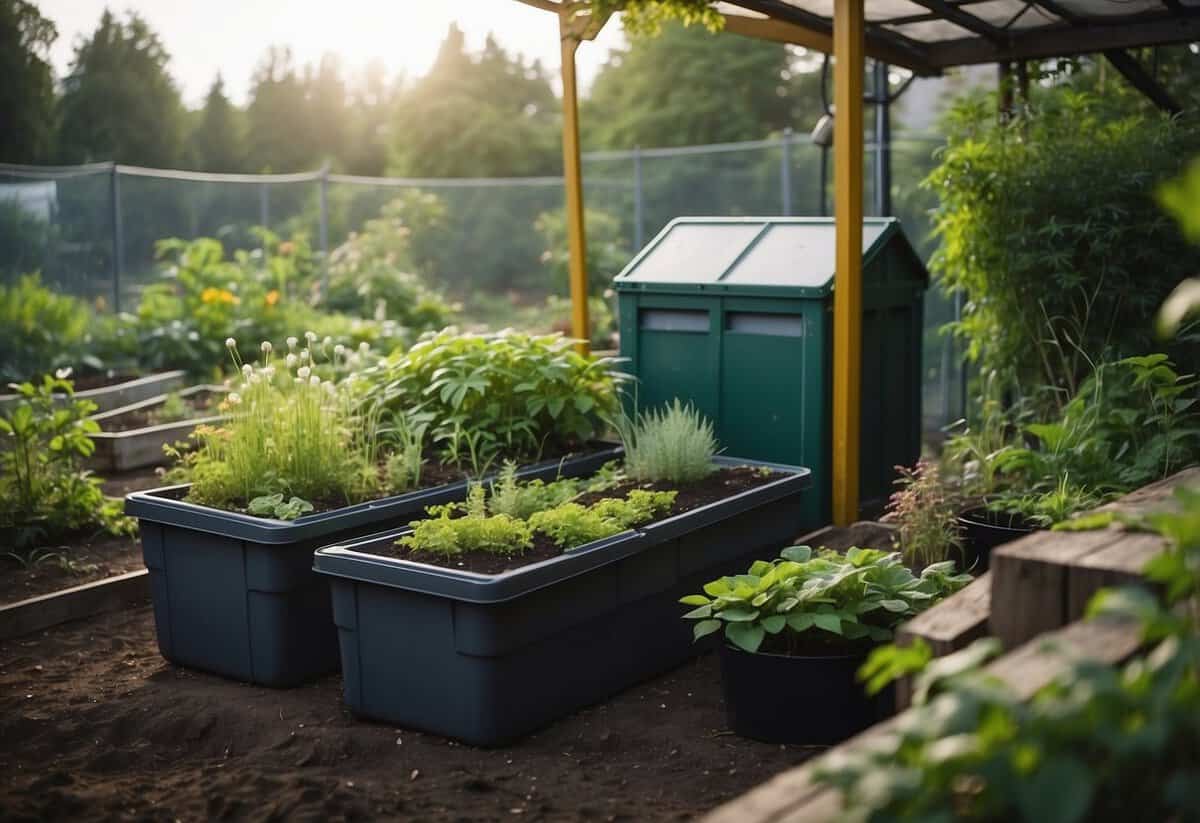
Sustainable gardening involves practices that protect the environment, support biodiversity, and use resources responsibly. It includes techniques to maintain soil health, conserve water, and nurture wildlife.
Organic Gardening Practices
Organic gardening is integral to sustainability. Instead of using synthetic fertilizers, you use compost and natural materials that enrich the soil. Composting is a simple way to recycle kitchen scraps and yard waste back into the garden. It boosts soil health by promoting microorganisms that help plants grow.
Another key practice is mulching. Applying a layer of mulch around your plants helps retain soil moisture, suppresses weeds, and prevents soil erosion. Mulch also breaks down over time, adding nutrients back into the soil.
Water conservation is crucial in sustainable gardening. Using gray water from showers and washing machines to irrigate your garden helps reduce water waste. It’s an eco-friendly method that benefits both your garden and the environment.
Lastly, supporting pollinators like bees and butterflies is essential. Planting a variety of flowering plants can attract these vital insects, enhancing biodiversity. Practices like No Mow May help by giving wildflowers and pollinators a chance to thrive.
For more in-depth tips, you can visit Epic Gardening and Garden Therapy.
Personal Growth and Learning
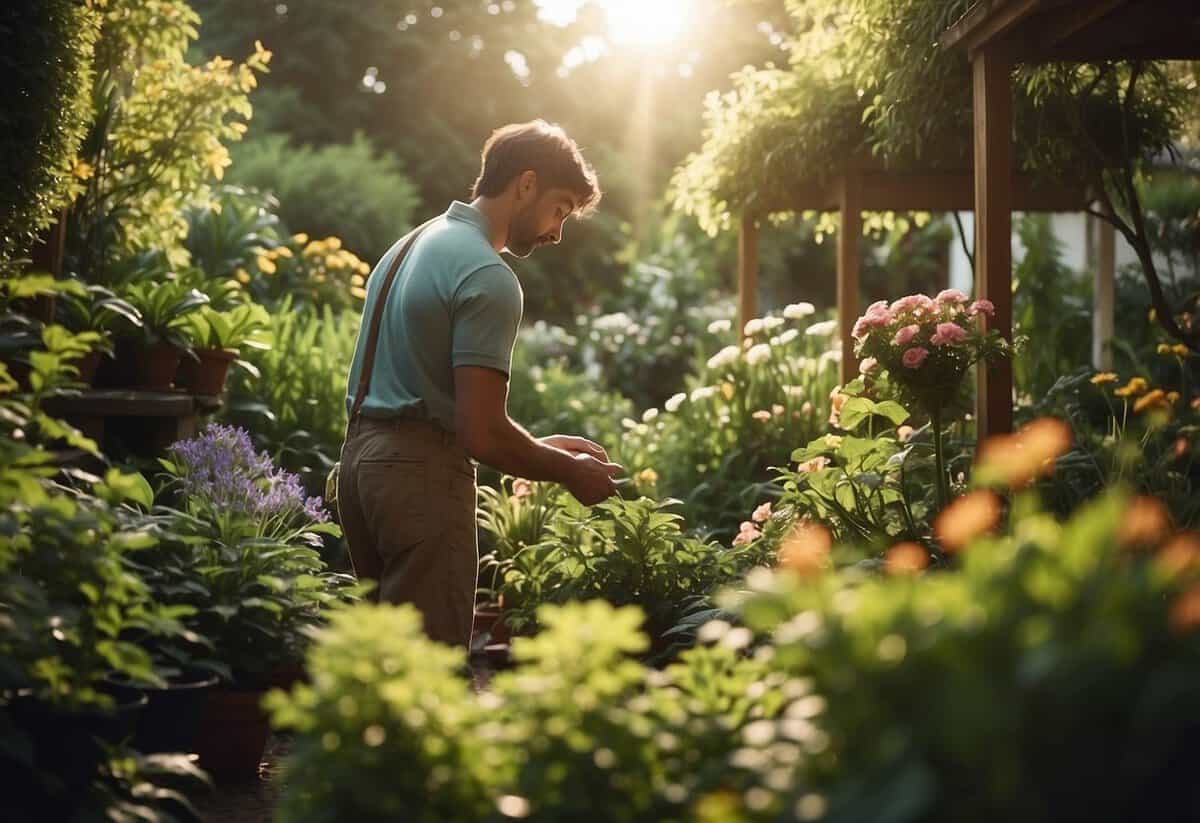
Working as a gardener offers many benefits for your personal growth and wellbeing. It encourages you to continually learn new skills while providing peace and relaxation through its therapeutic aspects.
Continual Learning and Experimentation
Gardening is a field where you constantly learn and experiment. You gain knowledge about plant species, soil types, and weather patterns. This hands-on experience helps you understand what works best in your garden.
Trying new techniques and plants keeps the process fresh and exciting. Every season brings new challenges and opportunities to expand your skill set. For instance, learning how to manage pests organically or experimenting with composting methods can be both satisfying and educational.
The environment of your garden is ever-changing, inspiring you to stay curious and engaged. You might read books, attend workshops, or even join online gardening communities to gain more insights. This ongoing education not only benefits your garden but also nurtures a spirit of continuous improvement and personal growth.
The Therapeutic Benefits of Gardening
Gardening provides significant therapeutic benefits, helping you relax and de-stress. The physical activity and fresh air can reduce stress levels and improve your overall mood. Being immersed in nature and focusing on tasks like planting or weeding offers a peaceful escape from daily pressures.
Working with plants can bring a sense of peace and satisfaction. Watching your garden thrive gives you a feeling of accomplishment and pride. It also allows you to disconnect from the hustle and bustle of modern life, creating a calming and peaceful environment.
Moreover, the repetitive tasks involved in gardening, such as watering or pruning, can have a meditative effect. This peaceful time in the garden can help clear your mind and uplift your spirit, making it a valuable and enjoyable activity for your mental well-being.







